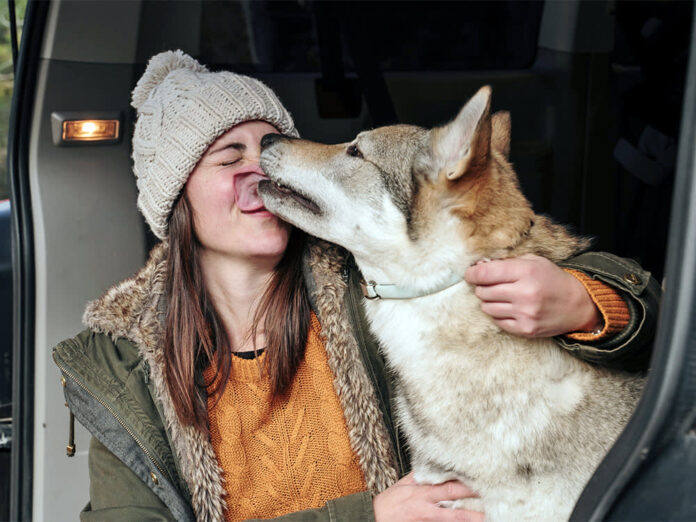Dogs are loving companions, but their licks can sometimes pose health risks. While dog saliva contains some antibacterial properties, it also carries bacteria and viruses that can be harmful to humans. Here’s a breakdown of the potential risks, diseases that can be transmitted, and hygiene tips to stay safe.
Can Dog Licks Cause Diseases?
Yes, dog licks can sometimes spread harmful bacteria and infections, especially if they come into contact with open wounds, the mouth, or the eyes. While most dog licks are harmless, certain bacteria and viruses in their saliva can pose risks to human health.
Potential Diseases From Dog Licks
1. Capnocytophaga Infection
- Cause: Capnocytophaga canimorsus, a bacteria found in the mouths of dogs and cats.
- Risk: Can lead to severe infections in people with weak immune systems.
- Symptoms: Fever, vomiting, skin rash, and in rare cases, sepsis.
2. Rabies
- Cause: Rabies virus, though rare, can be transmitted through saliva if the dog is infected.
- Risk: Deadly if left untreated.
- Symptoms: Fever, hallucinations, paralysis.
3. Salmonella & E. coli
- Cause: These bacteria can be present in a dog’s mouth if they have consumed contaminated food.
- Risk: Can cause food poisoning in humans.
- Symptoms: Diarrhea, stomach cramps, fever.
4. Ringworm (Fungal Infection)
- Cause: Fungal spores in the saliva.
- Risk: Causes itchy, red skin rashes.
- Symptoms: Circular skin patches, itching.
5. Staphylococcus (Staph Infection)
- Cause: Staph bacteria in a dog’s saliva.
- Risk: Can cause skin infections or, in severe cases, pneumonia.
- Symptoms: Skin redness, swelling, pus-filled blisters.
Who Is Most at Risk?
- Children (weaker immune systems)
- Elderly individuals
- People with weak immunity (e.g., diabetics, cancer patients)
- Those with open wounds
Hygiene Tips to Stay Safe
- Avoid Face Licking – Do not let your dog lick your mouth, nose, or eyes.
- Wash Hands Regularly – Always wash hands after playing with a dog.
- Keep Dogs Healthy – Regular vet check-ups and vaccinations are important.
- Clean Wounds Immediately – If a dog licks a cut or wound, clean it with soap and water.
- Brush Your Dog’s Teeth – Helps reduce harmful bacteria in their mouth.
- Avoid Sharing Food – Do not let dogs lick your food or plates.
Final Thoughts
While dog licks are a sign of affection, it’s important to maintain hygiene and be aware of potential risks. By following simple precautions, you can enjoy your pet’s love while staying safe from infections.



